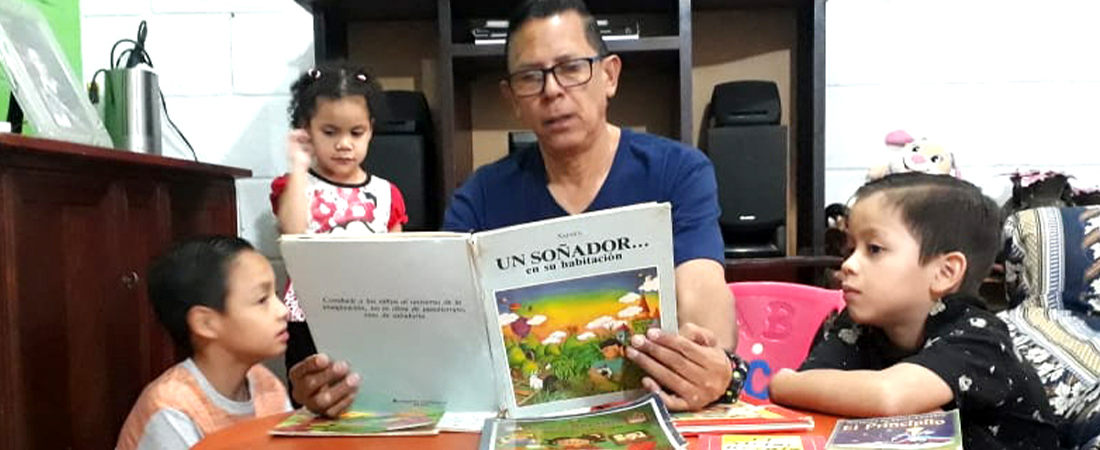With Schools Closed, Honduran Students Learn at Home

When schools in Honduras closed on March 15 to prevent the spread of COVID-19, the nation’s educators faced a difficult challenge: How could they continue to foster learning while students were home? The country’s Ministry of Education turned to EDC’s USAID-funded Honduras Reading Activity (HRA) for ideas. Soon, a national learn-at-home campaign was underway.
“Even though many parents are not teachers, they can follow quick and fun lessons with their children,” says EDC’s Juan Francisco Cruz, the director of communications for HRA. “Once the Ministry contacted us, we immediately started developing messages and materials to support literacy learning at home.”
Called Te Queremos Estudiando En Casa (“We want you studying at home”), the Ministry campaign raises awareness about the importance of supporting young children’s literacy skills, and offers parents and caregivers easy lessons to do at home.
The campaign has taken off. After only three days, the first set of videos reached nearly 20,000 views on Facebook alone.
Cruz says that the content developed by HRA, which will be uploaded to the Ministry of Education’s new virtual classroom, will reach more than 1 million students across the country. The project will also continue to promote the materials on social media, as well as through WhatsApp, where the project can reach a large network of teachers.
“We can easily reach more than 10,000 families using these channels,” says Cruz. Eventually, he expects some of the lessons and activities will be broadcast on local radio and television stations.
The short videos provide families with easy activities they can do with children in grades 1–6. In one video, a mother demonstrates how to play a simple rhyming game. In another, a teacher introduces new vocabulary words and definitions for third-graders. Other videos show parents reading books to their children.
To date, HRA’s teacher facilitators and master trainers have produced 80 audio lessons, as well as videos and worksheets, as part of the campaign. The materials emphasize the four foundational skills of language learning: listening, speaking, reading, and writing.
EDC’s Mónica Sahonero, a reading specialist, says that many of the videos also promote social and emotional learning skills. For example, some videos demonstrate breathing exercises to help children handle stress. Others invite families to share happy anecdotes to develop oral language skills and facilitate social cohesion.
“Families likely have limited resources and are suffering from accumulated stress, which is aggravated by the current crisis and the threat of disease,” says Sahonero. “We wanted these videos to emphasize resilience and hope alongside the literacy activities.”
Parents across the country have expressed appreciation and excitement about the materials.
“The videos are very beautiful and easy for students to understand,” says Fátima Mariela Paz, a mother from the Francisco Javier Rapalo School in the Department of Santa Bárbara. “It is an easy way for students to learn, as well as their parents.”
Luis Gavarrete, whose son attends the 18 de Noviembre School in Choloma, Cortés, says that the educational videos have given him a better idea of how to support learning at home. They also serve as a distraction during the crisis by providing an opportunity to work together as a family.
“I think the videos are good for our children, because apart from being educational, they are creative,” says Gavarrete.
By developing these materials, HRA and the Ministry of Education are trying to offer some sense of normalcy and support in this uncertain time. The hope is that if learning continues at home, it will be easier for students to adjust when schools open again.
“Once the schools open and kids return to school, HRA will continue supporting the Ministry of Education in improving the quality of education in Honduras,” says Cruz. “But until then, we think that this campaign can help keep children connected, engaged, and learning.”